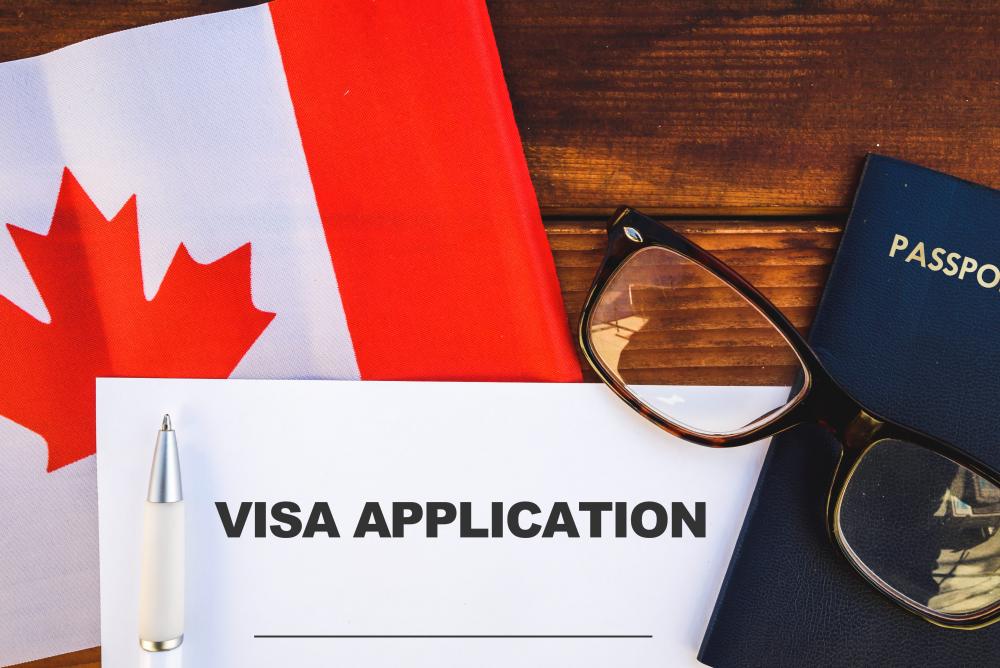When planning to study in Canada, one of the essential steps is obtaining a study permit, a necessary document that allows international students to pursue their education at Canadian institutions.
A critical factor in securing this permit is understanding the processing time, which can vary depending on multiple factors. This guide will provide insight into how the processing time is determined, the average timelines, and ways to ensure your application is processed as quickly as possible.
What Is a Study Permit?
A study permit is an official document issued by Immigration, Refugees and Citizenship Canada (IRCC) that authorizes foreign nationals to study at designated learning institutions (DLIs) in Canada. While the permit allows you to study in Canada, it is not an entry visa.
In many cases, students may also need an Electronic Travel Authorization (eTA) or a visitor visa to enter the country, which is issued along with the study permit.
Factors Affecting Study Permit Processing Time
The processing time for a Canadian study permit is influenced by several factors, each of which can affect how long it takes for your application to be reviewed and approved. Understanding these factors can help you prepare and ensure your application is processed without unnecessary delays.
1. Country of Residence
Where you are applying from plays a significant role in determining your processing time. IRCC has different processing times based on the applicant’s country of residence.
For instance, students applying from countries with more applications may experience longer wait times than those from countries with fewer applications. You can check the estimated processing time for your country on the official IRCC website, as these times are updated regularly.
2. Completeness of Application
Submitting a complete application is crucial for ensuring a smooth process. Missing documents, inaccurate information, or incomplete forms can delay processing. IRCC requires essential documents such as:
- Proof of acceptance from a DLI
- Proof of financial support
- Identity documents (passport and recent photographs)
- An explanation letter or study plan (if required)
Applicants may be asked to provide additional information or undergo a medical examination, which can further affect the processing time.
3. Biometrics and Medical Exams
Most applicants are required to submit biometrics (fingerprints and photo) as part of their application process. Once biometrics are submitted, IRCC will move forward with the application. For applicants from certain countries, undergoing a medical examination is also required, adding to the processing time. The results of these exams must be sent to IRCC before the permit can be issued.
4. Application Volume and Time of Year
The time of year can impact the processing time for study permits. Typically, IRCC experiences higher volumes of applications during peak months, especially in the months preceding the fall intake (September) and winter intake (January) for Canadian institutions. Applying early or during off-peak months, if possible, may reduce the waiting period.
5. Student Direct Stream (SDS)
For students from countries such as China, India, Vietnam, and the Philippines, Canada offers an expedited processing pathway called the Student Direct Stream (SDS). The SDS allows eligible students to receive their study permits faster, often within 20 calendar days, as long as they meet specific criteria. This includes proof of upfront financial support and completing a recent language proficiency test (such as IELTS).
Average Processing Time for a Canadian Study Permit
While the processing time can vary, IRCC provides an estimated timeline based on application data from previous years. On average:
- For standard applications, the processing time is around 8 to 12 weeks (2-3 months), depending on the country.
- Under the Student Direct Stream (SDS), processing can be as quick as 20 days if all requirements are met.
It is important to note that these are estimates and can fluctuate based on current events, government backlogs, or changes in application volumes.
Tips to Minimize Study Permit Processing Time
To ensure a faster processing time for your study permit, consider these steps:
1. Apply Early
One of the best ways to minimize delays is to apply well in advance. IRCC recommends applying at least three to six months before your program start date to allow ample time for processing, especially if you’re applying during peak seasons.
2. Use the Student Direct Stream (SDS)
If you are from an eligible country, apply through the SDS program to benefit from expedited processing. Ensure you meet all SDS requirements, including providing upfront financial proof and a recent language proficiency test.
3. Double-Check Application for Completeness
Before submitting your application, carefully review it to make sure all required documents are included. Incomplete applications often face processing delays. Preparing a complete and accurate application will prevent delays and potential rejections.
4. Submit Biometrics and Medical Exams Promptly
Once you are asked to provide biometrics or complete a medical examination, do so promptly. Avoid delays by scheduling appointments for these requirements as soon as possible and notifying IRCC once completed.
5. Consider Professional Help
Working with an authorized immigration consultant can be beneficial, particularly if you are uncertain about any part of the application process. Immigration consultants can review your documents, help with application submission, and provide guidance on meeting all requirements to avoid delays.
What to Expect After Submitting Your Application
Once you submit your study permit application, you will receive an Acknowledgment of Receipt (AOR) from IRCC. Following this, you may be required to:
- Submit biometrics, if you have not already
- Complete a medical examination
- Participate in an interview, although this is rare and depends on specific situations.
You can track the status of your application online through your IRCC account, allowing you to stay updated on any additional requirements or documents needed.
Final Steps After Receiving Your Study Permit Approval
Once your application is approved, IRCC will send a Port of Entry (POE) letter of introduction. This letter should be presented to the immigration officer upon arrival in Canada. Additionally, if you are from a visa-required country, your visitor visa or eTA will be issued alongside your study permit.
Conclusion
Understanding the processing time for a Canada study permit and taking proactive steps can make the process smoother and faster. By applying early, using expedited options like SDS if eligible, and ensuring your application is complete and accurate, you can reduce the risk of delays.
Preparing in advance and staying informed about the process will help you start your studies in Canada on time, fully equipped to begin your academic journey.




